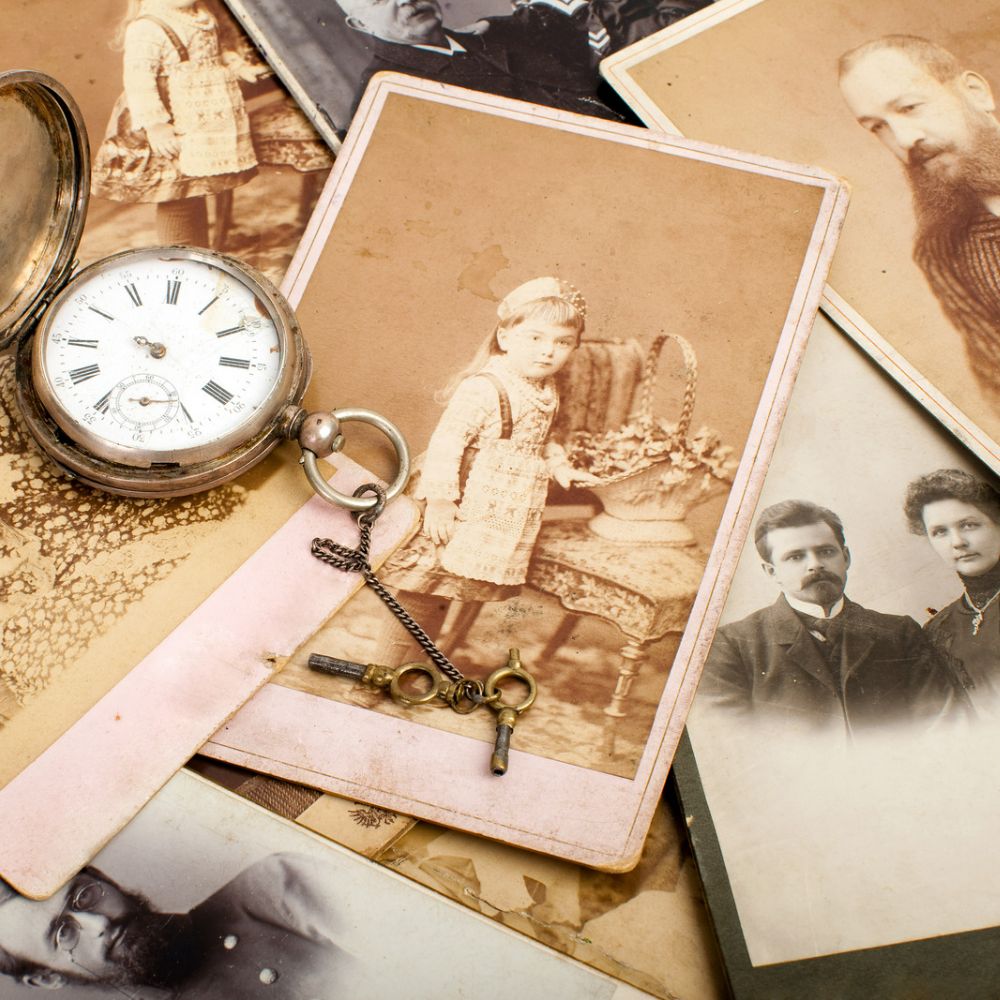All Articles & Guides / End of Life / How to Write an Obituary
How to Write an Obituary
If you’re faced with writing an obituary, whether your own or someone else’s, you’re probably wondering how you can possibly summarize an entire life in just a few words. The answer, of course, is that you can’t. You can, however, include the highlights of a loved one’s life in a compact format.

What is an Obituary?
An obituary is a brief article that announces the news that someone has passed. Traditionally, obituaries were posted in newspapers, but in today’s digital world, news platforms typically publish obituaries online. Obituaries provide key details and information on a loved one’s life, but they’re written by editors or reporters from a media source after a submission has been given by a deceased’s loved one.
Eulogy vs. Obituary
Although both pay tribute to the deceased, an obituary is a published notice of death while a eulogy is a written speech that is read during a funeral or memorial service.
Eulogies go into the details and specific memories of a deceased’s life and can include stories, highlights, and special memories. You can have multiple eulogies at a funeral, delivered by the closest and important people from the deceased’s life.
While the purpose of an obituary is to announce a person’s passing to the general public, a eulogy pays tribute and helps provide closure to mourners.
Death Notice vs. Obituary
A death notice is typically a very brief notice of death and funeral arrangements. Death notices may be published at minimal cost so they are paid announcements. Family and friends are responsible for writing a death notice.
On the other hand, an obituary is typically written by the newspaper’s staff, with details provided by a deceased’s loved ones. Many newspapers and online media sources offer obituary submissions about a person who passed, and can choose to publish or not publish the article since it is free of charge.
Choosing between a death notice vs. obituary should come down to whether you’d prefer a brief public announcement or a more in-depth article to help memorialize your loved one.
How to Write an Obituary
Deciding how to write an obituary can be tricky. These are the final words that are representing the deceased so it’s important to choose the right words to memorialize your loved one. If the deceased left no instructions to guide you, be sure to use an extra measure of care in your writing. Emotions run high in times of grief, and survivors may be exceptionally sensitive to perceived slights or inaccuracies. When in doubt about what to write, seek the advice of another trusted family member or friend and always have a proofreader edit your obituary.
There are some step to follow when writing an obituary to make sure all the necessary details are included.
First, include the basic information:
- Full name of the deceased. Include former name or nickname, especially if it is more likely to be recognized than the proper name
- City and state of residence. For security reasons, do not include the street address
- Place and date of death (city and state; include the name of the facility, if desired)
- Cause of death. May be omitted or implied in memorial information
- Place of birth (city and state)
- Age or year of birth
- Names of survivors and their relationship to the deceased
- Names of predeceased family members
- Occupation
- Military service
- Community involvement and memberships
- Date, time, and place of funeral services
- Preferences regarding memorial gifts or donations
Tips for Writing an Obituary
The best obituaries go beyond offering standard information, they aim to incorporate stories that evoke emotion. Writing an obituary that has a range of emotion can captivate a reader and the emotional response can vary between a smile or a tear, but both have the goal of capturing the personality of the deceased and sharing their best attributes.
Writing an Obituary for your Father or Mother
Losing a parent can be one of the hardest moments you experience in a lifetime. Being able to honor and memorialize a parent through an obituary is one way to help process grief and mourning.
Some examples of what to include when writing an obituary for your mother or father include:
- A story of the extraordinary parts of their life – Did they travel? How did they meet? Did they perform any noteworthy feats?
- A synopsis of philanthropic moments – Did they dedicate time to volunteering or make a difference in someone’s life?
- Share personality traits – Did they have a fantastic sense of humor? Were they known for their dad jokes? Did they play practical jokes or have funny quirks?
- Highlight hobbies – Did they have passions or activities that they were known for? Did they enjoy life’s adventures and teach you their hobbies?
- Share parenthood stories – Do you fondly remember interactions from your childhood? Do you have vivid memories of some of their best parenting stories or quirks?
Finally, when writing an obituary, remember to strike a balance between life and death. Capture the spirit of a loved one who has passed, but also write for the living. Those who are mourning the loss of their family member, friend, or coworker will find comfort in words that capture the essence of the deceased.
This is your opportunity to describe the qualities that made the deceased special-“devoted husband and father” or “dedicated volunteer,” for example. You may also want to make defining statements, such as “Jim will always be remembered for his great love of the outdoors and concern for the environment,” or “Sheila’s many friends will miss her warm smile and unfailing kindness.”
Final Steps of Writing an Obituary
When you’ve finished writing the obituary, carefully proofread and edit your work. Make sure your facts are accurate and double check dates and spelling. Then, to make sure the news of death reaches as many people as possible, consider sending the obituary to newspapers in cities where the deceased previously lived or worked, in addition to the local newspaper.
Most newspapers and digital media sources now have submission forms online for obituary submissions. Keep in mind that not all are published, so it’s fine to send obituaries to multiple publications.
Obituary Example
Here is an example to give you an idea of how to write an obituary.
Laura Miller
12/01/1960 – 03/10/2021
On March 3rd, Laura Miller, beloved wife, mother, and friend, passed away at the age of 80 years young. Laura was born in Denver, Colorado and gained a degree in environmental science. Her passion for the outdoors drove her to travel and volunteer throughout the western U.S. state and national parks where she met her husband, John. They married in 1985 and raised two daughters, Jessica and Alice.
Laura’s passion for the great outdoors was known by all. She was an avid hiker, enjoyed bird watching, and taught her family members wildlife survival skills and plant identification. Her knowledge has passed down through generations and sparks fond memories of camping under the stars and laughter-filled outdoor adventures.
Laura was known for her infectious laugh and sense of humor, her compassion for helping others, and her wit. Laura leaves behind a strong family that vow to carry on her environmental work and in lieu of flowers or gifts we instead ask for donations to be made to the Wildlife Animal Refuge. A memorial service will be held March 20th, 2021 at the family home at 123 Skye Street at 2 p.m.
Related Content






